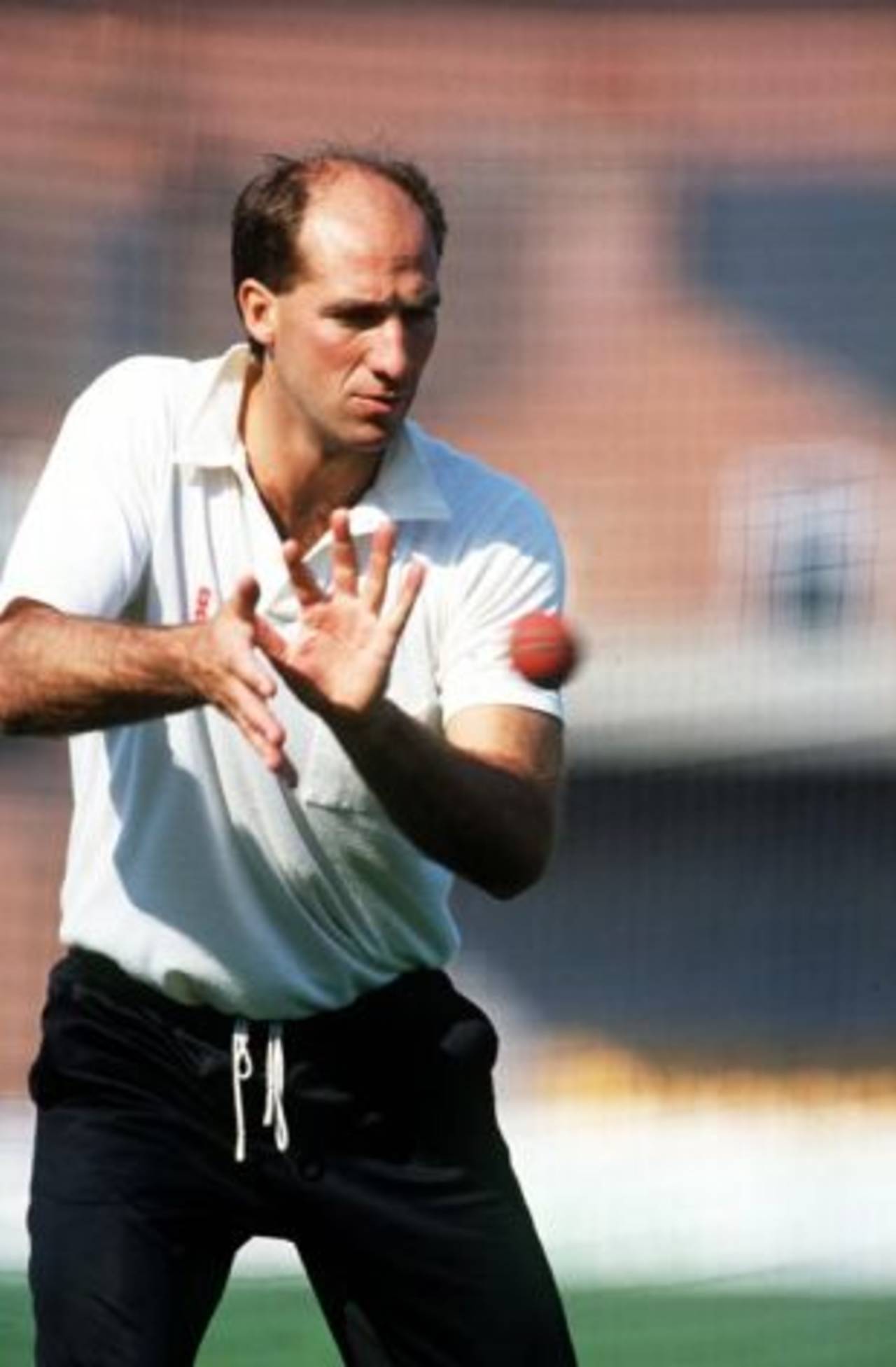It may have become a cliché, but when Derbyshire's captain Kim Barnett moaned "It's not cricket" after his side were knocked out of the NatWest Trophy in June 1991 he had a point. The county had just become the first to be beaten by a new and controversial eliminator - the bowl-out.
The conundrum of how to settle cup ties that were affected by the weather had been troubling the authorities ever since the first one-day knock-out match in May 1963. That game, at Old Trafford, spilt over into a second day because of rain. While reducing the number of overs in the match to as few as 10 usually allowed enough time to produce a result, there were still occasions when it did not. The 1977 Gillette Cup semi-final between Middlesex and Somerset spanned five washed-out days before the two captains agreed on a near-farcical 15-overs-a-side slog at the end of the sixth.
Coin tosses were the last resort, but everyone disliked them as they were pure luck. What was wanted was something with at least an element of skill. In club cricket various alternatives had been around for years, including indoor contests such as darts and snooker when play outside was impossible.
The England board finally settled on bowl-outs, another innovation from club cricket. Five bowlers, two balls each, the winners being the team who hit the stumps the most. With the four-day Championship being introduced in instalments at the time, the three days usually allocated for ostensibly one-day games had also been cut to two. The bowl-out was a last resort that everyone knew would be resorted to sooner rather than later.
Derbyshire's visit to Bishops Stortford to meet Minor County side Hertfordshire, in the NatWest Trophy first round would usually not have posed too many problems. But heavy rain on the first day left the pitch sodden, and at 2pm on the second the umpires decided no play would be possible.
The captains and officials discussed what to do for some time, with telephone calls made to nearby first-class grounds where the better covering might have enabled a short game late in the day. A conversation with England board secretary Tim Lamb at Lord's finally produced the bowl-out ruling.
Even then there was more debate. Should the bowl-out be indoors or outside? As the rain had relented, the umpires decided to go outside. Aside from the two sets of five bowlers, the only other participants were the two wicketkeepers and the umpires. The nervous non-participants milled around inside the boundary a respectable distance away. At 4.15pm the fun started.
Derbyshire's five bowlers went first. Barnett did not pick his sometimes wayward fast bowler Devon Malcolm, but despite that only Steve Goldsmith managed one hit from his two deliveries. Ole Mortensen, Alan Warner, Frank Griffiths and Simon Base all missed with both of theirs.
Hertfordshire's first bowler, former Middlesex allrounder Andy Needham, hit with his first ball but missed with his second. John Carr, also previously with Middlesex, missed with both his, but then another former Middlesex professional, Bill Merry, struck middle with his second attempt to win the match.
Celebrations were muted. David Surridge, Hertfordshire's captain, told the press it was a "hollow victory", adding that "if we'd have won in normal circumstances we'd have partied into the night". Barnett called on the authorities to seed first-class teams so they were not asked to play on grounds with lesser covering. "We can probably cope with the weather better than Minor Counties."
At The Oval, Surrey escaped a similar fate when they edged their game against Oxfordshire 3-2 in a bowl-out in the Ken Barrington indoor school. It was their third attempt to get a result. On the first day Surrey had reached 140 for 1 when rain washed out play. On the second day a new match had to be started late, around 3.30pm. Oxfordshire made 91 for 6 in 20 overs and Surrey were 39 for 3 in 5.4 overs when the heavens opened at 5.30pm. By that time Lamb, at Lord's, had already been consulted, so everyone knew what to expect.
The umpires allowed the two sides 45 minutes practice before the captains were asked to name their five bowlers. Surrey's Waqar Younis hit with his first ball in reply to Oxfordshire's score of two, but then a succession of seven misses followed. The last Surrey bowler was medium-pacer Tony Murphy. One to take the bowl-out to sudden death, two to win. He hit twice and Surrey, more relieved than delighted, were through.
Is there an incident from the past you would like to know more about? Email rewind@cricinfo.com with your comments and suggestions.

